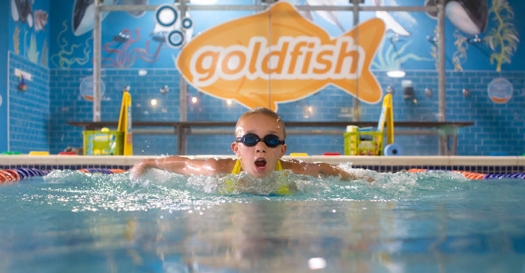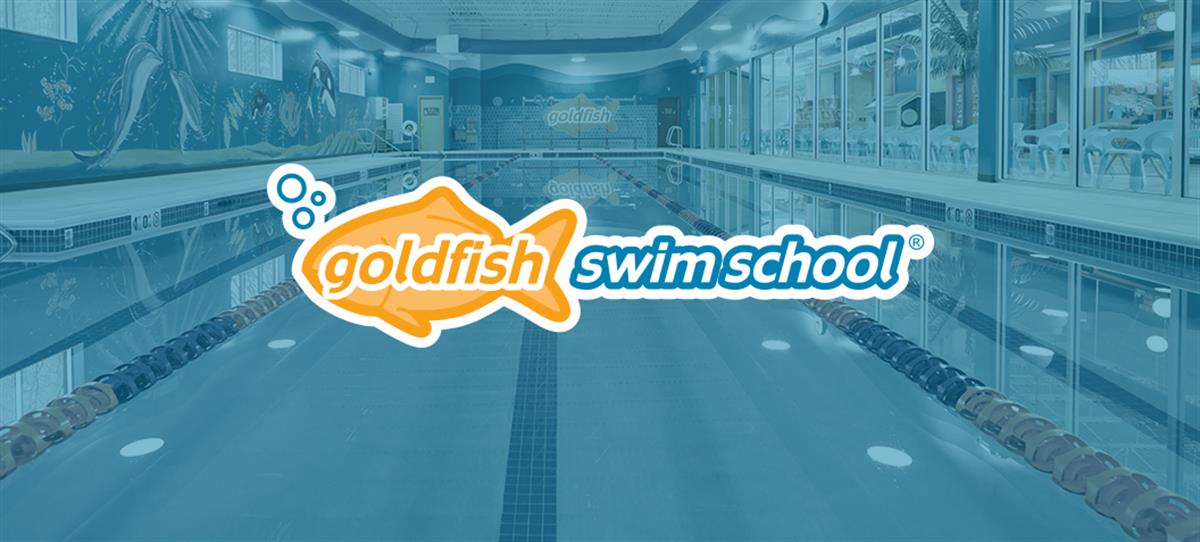So You’re Thinking About Getting Your Kid Into Competitive Sports

Every four years, athletes across the globe come together to compete in the worlds largest sporting event, and in doing so inspire us to imagine the possibilities as we catch the spirit and dare to dream. If you witnessed your childs eyes light up as they watched fellow swimmers, soccer players and skateboarders on TV this summer, you know what we mean!
Perhaps youve even found yourself thinking about what your childs future could be. Todays children are tomorrows champions, after all! Just ask Katy Murphy, whose little fish Ryan Murphy went on to become a World Champion Swimmer and Olympic gold medalist!
If your kids have started to show interest in sports, or youve started to think about getting them onto a competitive team, keep reading! Were diving into the benefits of competitive sports for kids, how to know if your child is ready to take the plunge and what you can do to help them develop an athlete mindset that will help them make BIG waves in all areas of life!
6 WAYS COMPETITIVE SPORTS BENEFIT KIDS
The lessons kids learn from competitive sports empower them to achieve Extraordinary Results in all areas of life. Here are just a few of the many benefits kids gain from playing a competitive sport theyre passionate about:
1. Provides Physical Exercise
Competitive sports can be a fun way for kids to stay active! As theyre busy playing a sport they enjoy, theyll also get in a good workout, which will help keep their growing bodies healthy and strong.
2. Supports Academic Success
Research shows that kids who play sports are more likely to do better in school. The same time management, self-discipline and commitment thats required to excel in the pool or on the field carry over to the classroom and help student-athletes succeed on both fronts.
3. Teaches Teamwork
As the saying goes, theres no I in team. Everyone has a role to play! Learning how to be a good teammate and working well with others starts at a young age. Competitive sports can help kids learn how to use their talents to support their teammates and encourage each other as they work toward shared goals. The bonds that are formed through these shared experiences, often lead to teammates becoming good friends. The friendships our swim buddy Ryan Murphy made through learning to swim as a child, and then through teams and competitions, have encouraged and motivated him in and out of the pool!
4. Fosters Work Ethic
It takes a lot of hard work and preparation to make it to the big leagues! Professional athletes spend years diligently practicing and perfecting their skills so they can perform to the best of their abilities. Through competitive sports, kids learn what it means to be committed – to themselves and their team! – and develop the work ethic and discipline required to excel at anything they put their mind to.
5. Boosts Confidence
Practice makes progress! Every stride they take, shot they make and goal they score adds up to a big boost in self-esteem. As kids overcome obstacles and realize what theyre capable of accomplishing when they apply themselves, they begin to believe in themselves more and more. With each new experience, their confidence grows, and it showsespecially when the focus is on continuous improvement and reaching their personal best, as opposed to a score.
6. Builds Character
Competitive sports also help teach kids other important life skills, like how to set and achieve goals, stay calm under pressure, develop a growth mindset and view losses as learning opportunities. Not everything will always work out the way they hoped. Some things will come easy to them, and others theyll have to work harder for. Some days theyll win, and some days theyll lose. Learning how to navigate these challenges and control emotions when disappointment sets in helps build character and teaches kids about resilience.
IS YOUR FAMILY READY TO DIVE INTO COMPETITIVE SPORTS?
As parents, we all want to see our children having fun and excelling at a sport they enjoy. Although they may show interest in a particular sport and have natural talent, there are a number of different factors to consider before jumping into competitive sports, such as your childs age, emotional maturity and motivation for joining a competitive team.
Its also important to remember that theyre not the only ones who will be asked to make a commitment to the team. Youll need to ensure theyre able to get to and from practices, arrange travel for away games and support your little all-star and their new teammates when its your turn to volunteer and provide snacks.
Whether your child is ready for the commitment of joining a competitive team, or theyre still exploring their options, we invited our friends Dr. Molly, the official pediatrician of Goldfish Swim School, and Katy Murphy, mom of World Champion Swimmer and Olympic athlete Ryan Murphy, to share how parents can support their childs personal growth and development as they show interest in the world of competitive sports. Heres what they had to say:
Getting into a competitive sport is a great opportunity, but it’s also a big commitment! What are some things parents and children should consider before making the leap into competitive sports?
Dr. Molly: If your child is considering a commitment to a truly competitive team that will count on their presence, talk through what that means to your child. Many kids are eager to sign on and ready to go the distance. Some kids, though, may find the intensity of play, or the personalities that accompany competitive youth sports, a difficult transition. Talk to your child about how equipped they feel to manage all aspects of the game. Discuss the commitment and ensure that your child is ready for the long haul. Time away from other activities, emotional and physical commitment, and school/sports balance should all be thought through before making a decision to move forward.
Katy Murphy: Taking the plunge into a competitive sport should be fun. If its not fun, then its time to reevaluate. Parents need to define the level of commitment to their children. Its essential to allow young children to choose their activities or sports at the beginning of a season, but its important to require follow-through until the season ends. After a season is complete, then each child has the opportunity to continue with the same activity or sport, or to try something new. Accountability is necessary from both parents and their children. Children learn about commitment and parents support, volunteer and encourage.
What can parents do to help their kids when they’re faced with “pre-game jitters” before a big competition?
Dr. Molly: First off, reinforce that these feelings are normal! Ask them if they want to talk about it, or if they want to try to relieve the worries with some calming strategies. Work on some breathing techniques or mantras your child can repeat to help calm their mind and body as the jitters creep up. Practice these at other times too, so that they are easier to recall when the mind is all a flutter with worry.
Katy Murphy: As the number of athletes that advance in a sport decreases, the competition increases. Ryan was never afraid of competition and was not easily intimidated. However, he did struggle with nerves when he was younger. One memory is vivid: we were at a travel meet when he felt his nerves and got sick. The official would not let him swim. That was an eye opener for Ryan. He was more upset that he couldnt race than he was about how he felt physically. We had a LONG talk about if swimming was fun for him and why he got so nervous. Since that moment, Ive watched him grow in maturity and learn how to use relaxation strategies to control his nerves and calm his mind as he became a student of the sport.
What are some ways parents can help foster their child’s personal growth and development when it comes to developing an athlete mindset, should they ever feel like throwing in the towel and giving up?
Dr. Molly: We all feel tired, overwhelmed or defeated at times. Be sure to empathize with your child first! Honor their feelings of wanting to give up. Its normal to feel that way sometimes! Ask them questions to better understand why they feel this way. Explore with them whether the feelings are due to a specific circumstance, life balance, or a loss of interest/passion for the activity. Coach your child to think through what happens after they quit: what do they think their life looks like? Is it realistic? What will they gain? What will they miss? Kids often express this sentiment when they just want to vent and are feeling disappointed or overwhelmed. By empathizing and then exploring it with them, you validate their feelings and then help them navigate the thought process of persevering, even when its hard.
Katy Murphy: We had a couple rules in our house. First, Quit was not in our vocabulary. So, each school year, Ryan and his siblings were allowed to choose their activities. They didnt have to sign up for the same sport or club that they did the year prior, BUT if they decided to try something, they had to finish the season. Secondly, school always came first. Sports also provided social opportunities when my children were young. Even when they got older, their social circles tended to be their teammates. The growth, which evolved from these rules, was a value of commitment, recognizing the importance of priorities and appreciating relationships. In our family, we always supported each other and while we celebrated accomplishments, we talked often about disappointments. That unconditional love helped balance the highs and the lows.
How can having an athlete mindset benefit kids in other areas of their life?
Dr. Molly: An athlete mindset is not about winning and losing, or even about being better than anyone else. It is about improving yourself so you can better serve your team. With that mindset, you can be the best version of yourself, set goals in every aspect of your life and win!
Katy Murphy: I believe that time management skills, a strong work ethic and the ability to collaborate are all benefits of having an athletic mindset. The competitive drive, which is developed through athletics, continues in all facets of life. Also, being part of a team as an athlete develops the ability to work well with people.
How do you feel this ties into helping kids set goals, handle setbacks and overcome self-doubt or fear of failure?
Dr Molly: Encouraging kids to take on new things, letting them do it on their own, and then praising the effort allows kids to see the connection between effort and outcome. As a result, kids become confident and resilient. Minimizing setbacks and failures which feel big to kids. and not empathizing with the big feelings that come along with them, can make kids more reluctant to try things. When we help them manage the disappointment and move on, kids become emotionally stronger and ready to take on the next big thing.
Katy Murphy: Its important for children to realize that growth comes from failure. Its also important that parents praise children for the accomplishments they make. Swimming is a unique sport and every person in the race will not touch the wall first. Its very individual and the clock defines improvement. Therefore, when a child is young, he or she should be taught that the goal is to improve his or her personal best time. When a child has a disappointing race, parents need to find something good about it, whether thats the start, the stroke technique, the turn or the finish. Its essential that parents explain that some races wont go as planned, and thats a good thing because it is an opportunity to learn.
HOW TO PREPARE YOUR CHILD FOR COMPETITIVE SWIMMING
If your child has big dreams of becoming a world champion swimmer like Ryan Murphy, a great way to introduce them to the sport of swimming is to enroll them in lessons, which will help them develop the skills theyll need to become a safe and confident swimmer, strengthen their understanding of basic swim strokes and prepare them to compete at the next level.
Here at Goldfish Swim School, kids have an extra incentive to keep advancing through swim lessons: A chance to join our very own swim team!
Our Swim Force program allows swimmers who have passed Pro 2, our final level of swim lessons, to continue developing their swim skills while learning competitive swim techniques in a fun and friendly team-oriented environment.
Theres no intimidating tryouts, its only one day a week and the coaches are there to help kids reach their full potential as they dip their toe into a competitive sport. These are just a few of the many benefits that come from joining the Swim Force team.


